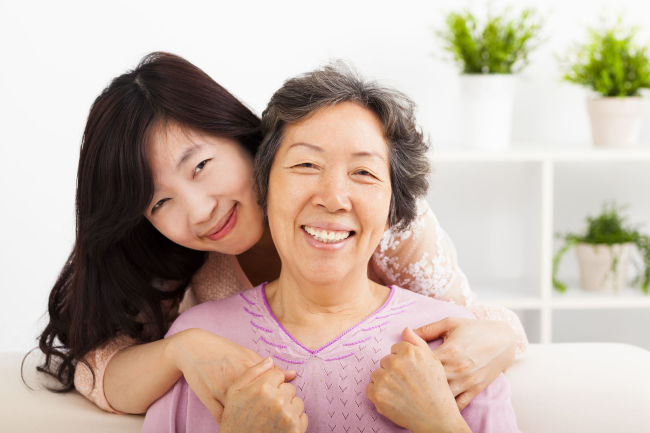Fewer Koreans feel responsible for aging parents
Published : 2016-05-08 17:28:50
Fewer Koreans believe that grown-up children should be responsible emotionally and financially to care for their aging parents, a study showed Sunday.
According to the report released by the Korean Women’s Development Institute, 16.6 percent of Koreans said in a survey conducted in 2014 that an individual is responsible to finance their own post-retirement years. It showed a 1.7-fold increase from 9.6 percent in 2002.
At the same time, the number of those who think family members, including grown-up children, should emotionally and financially care for their aging parents dropped dramatically from 70.7 percent to 31.7 percent over the same time period.
According to the report released by the Korean Women’s Development Institute, 16.6 percent of Koreans said in a survey conducted in 2014 that an individual is responsible to finance their own post-retirement years. It showed a 1.7-fold increase from 9.6 percent in 2002.
At the same time, the number of those who think family members, including grown-up children, should emotionally and financially care for their aging parents dropped dramatically from 70.7 percent to 31.7 percent over the same time period.

Those who felt that the government and family members should share the cost of caring for elderly parents increased from 18.2 percent to 47.3 percent.
Filial piety – caring for one’s parents both emotionally and physically -- has been largely considered as one of the most important traditional values here. Until the mid-1980s, all grown-up children in Korea, especially sons, were “expected to have the responsibility and obligation for their aged parents’ well-being because of the reciprocal dependence of successive generations,” according to scholar Keun Young Chung Peng’s 2000 book “Virtuous Transcendence.”
“Parents may depend on all their sons because all their sons have depended on them,” the scholar wrote in the book. “Each son has a debt from his early years that has to be repaid.”
The current law also states that all adult Koreans are legally obligated to financially support their spouses, parents and parents-in-laws.
Yet with the nation’s changing family structure along with its high youth unemployment rate and expensive living cost, more elderly citizens here are becoming unable to rely on their children to take care of them.
As of last year, 1.38 million elderly Koreans were living alone, almost a two-fold increase from 777,000 back in 2005. Those who live alone accounted for 20 percent of the entire Korean elderly population last year.
According to a recent study by the Korea Institute for Health and Social Affairs, only 4.2 percent of elderly Koreans who lived alone said they didn’t have any problems while living on their own.
The biggest proportion of them, 37.2 percent, said the most concerning issue was having no one to take care of them when they were ill. Meanwhile, 24.4 percent of them said they suffer from loneliness and anxiety, while 21.6 percent said they are worried about their finances.
The report from the KWDI also found that the proportion of elderly Koreans who receive financial support from their grown children dropped from 40.1 percent to 23 percent from 2005-2014.
Meanwhile, the number of Korean parents who sued their children for financial support more than doubled from 135 in 2004 to 262 last year.
More than 75 percent of elderly Koreans surveyed by a local pollster last year said “filial duty contracts” – a legal document that makes it mandatory for all grown children to financially care for their aged parents – are necessary should children receive any gifts such as real estate or stocks from their parents. Health Ministry data showed that of 5,772 reported instances of elderly abuse in 2014, 51.1 percent of the abusers were the victims’ adult children.
A study last year by the National Pension Research Institute found public transfer payments, such as retirement benefits and living allowance, only made up about 28.8 percent of the average income of the Korean elderly, with almost 50 percent of them living below the poverty line – the highest among Organization for Economic Cooperation and Development member nations. In other developed countries such as Denmark, Finland and Australia, public transfer payments accounted for at least 70 percent of the average income of their elderly citizens.
By Claire Lee (dyc@heraldcorp.com)
http://www.koreaherald.com/common/newsprint.php?ud=20160508000359